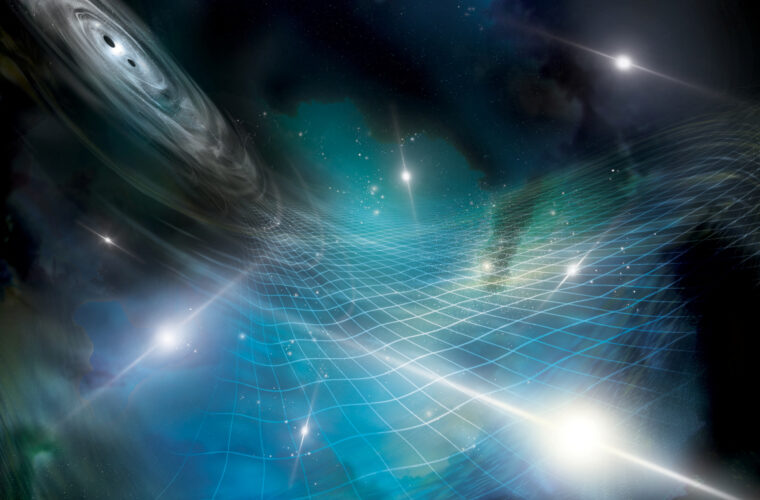The astrophysics world has always fascinated human beings. The uncertainty of the future is something that excites the imagination, and so it is also for those who try to understand how the Universe could end. Over the years, many theories have been made: infinite expansion, Big Bang, singularity, static. Now, research opens up a new scenario for the end of the Universe: that of evaporation. According to the theory of some scientists, who were based on the one published by the famous Stephen Hawking a few years ago, our Universe is literally evaporating, and this process will end when the evaporation is over, and there is nothing left. Let’s understand this strange theory better by trying to be as clear as possible.
The new theory on how the Universe will end
A group of scientists from the Dutch Radboud University, Michael Wondrak, Walter van Sujlekom and Heino Falcke, carried out the new theory. It was published last April in the journal Physical Review Letters. To arrive at this theory, scientists based themselves on that of the evaporation of black holes formulated in 1974 by Stephen Hawking. This predicts that although black holes have a gravitational field so powerful that neither matter nor light can escape them, there are some conditions under which they can slowly evaporate, emitting thermal radiation.
This evaporation would lead to the narrowing of the event horizon of a black hole whose final stage has not yet been discovered and represents one of the greatest mysteries in physics. Numerous studies have demonstrated different fates for the evaporation process of black holes, and the latest is the one published by Dutch scientists who based themselves on the famous Hawking theory and another theory known as the Schwinger effect, which occurs in electric fields.

The study was published on 2 June in the leading journal “Physical Review Letters” of the American Physical Society (APS). Michael Wondrak is an excellent fellow at Radboud University and an expert in quantum field theory. Walter van Suijlekom is a Professor of Mathematics at Radboud University and works on the mathematical formulation of physics problems. Heino Falcke is an award-winning Radio Astronomy and Astroparticle Physics professor at Radboud University. He is known for his work on predicting and making the first picture of a black hole.
Stephen Hawking
Trying to explain it in a very basic way, the idea is that a strong enough electric field leads to the creation of pairs of particles and anti-particles, which in turn cause the decay of the electric field itself. The analogy with the Universe is that particles could evaporate from a black hole and end up destroying it. Einstein’s theory of general relativity says that any mass causes a curvature of space-time, the fabric of which our Universe is made basically; the gravitational field of these masses causes the space-time around them to deform, as a weight resting on a sheet.
Time after time
The researchers showed that even in these scenarios, it is possible to observe fluctuations that lead to the evaporation of particles typical of black holes without the need for the presence of a “catalyst” such as the event horizon. “This means that even objects without an event horizon, such as the remains of dead stars or other massive bodies in the Universe, can emit radiation like Hawking radiation. If this were true, it would mean that in a very long period, the entire Universe will evaporate, just like what happens to black holes,” said the researchers. But how long before all this could happen? Considering that for the evaporation of a hole black of the mass of the Sun, with an event horizon of about 6 kilometres in diameter, it takes about 1064 years, there is time to think and worry about other things.



